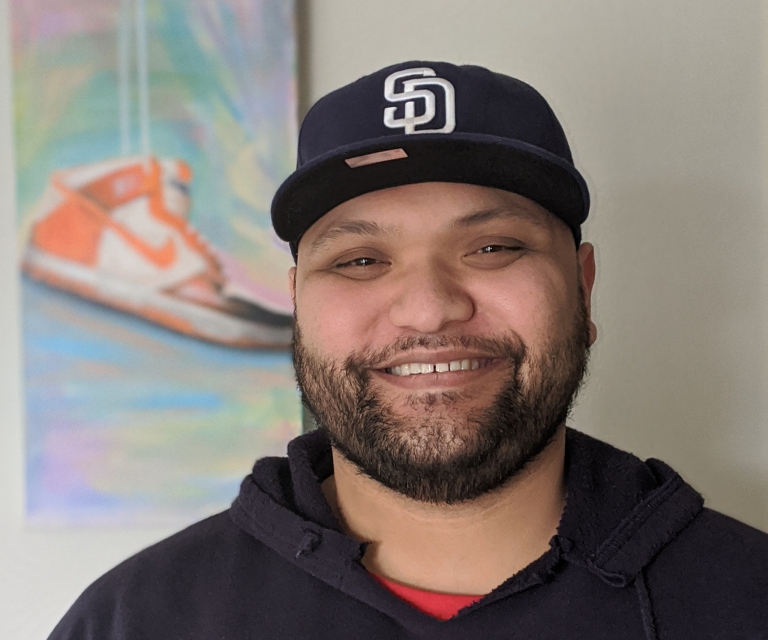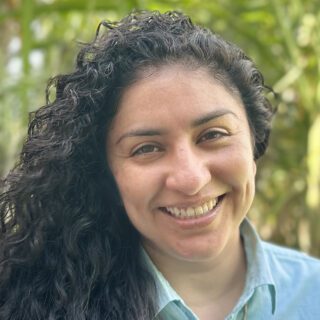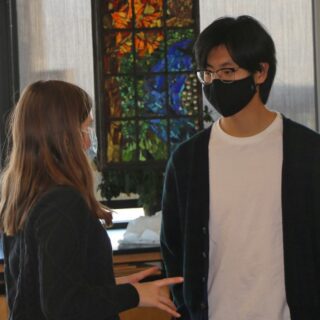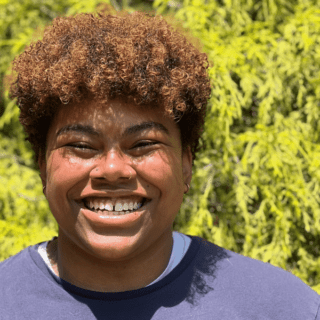
PhD Student Aims to Shatter Stereotypes for Pacific Islanders
Jarime Chaco, a first-year PhD student focusing on Urban Education, uses his writing to show young Pacific Islanders how education can open doors. In this Q&A, he discusses his experience at Pitt Education, his non-traditional path to a PhD, and dancing. His quotes have been edited for length and clarity.
Why did you choose to pursue a PhD with a focus on Urban Education at Pitt Education?
Chaco: The School of Education’s mission-vision to support equity and justice relates to my interest in educational literacy and access for Pacific Islander populations. I like how the school addresses current social issues and makes it relatable to our own interests as students. The faculty members here use a lot of the methodologies that I’m interested in, such as qualitative research, auto-ethnography, and counter-storytelling based on Critical Race Theory. I like the idea of telling someone’s narrative from their own view.
Tell us about your background before coming to Pitt Education.
Chaco: I grew up in San Diego, California and Houston, Texas. In my Pacific Islander culture, it’s expected for men to only do manual labor like landscaping or fishing, or to join the military. With a lack of emphasis on education, I initially struggled through my own K-12 experience at under-resourced schools. When I graduated from high school, I didn’t think I could go to college, so I joined the Air Force. I served for six years, including some time overseas. Later on, I decided I wanted a career as a civilian, so I went on to junior college and then eventually earned a Bachelor of Science in Sociology at the University of Houston. Now as a PhD student, I want to educate Pacific Islander kids about navigating education so that they might not struggle like I did.
Who has been your support system at Pitt Education?
Chaco: The Center of Urban Education, under the guidance and direction of Dr. Elon Dancy, has been my support system. My advisor, Dr. Jason Mendez, has also been a big support. They all focus on the idea of catering to the students’ personal interests instead of just disseminating information. There is a strong sense of students as individuals. I’ve had Dr. Mendez for courses about Critical Race Theory and culturally responsive pedagogy. He does more than just teach; he is an exemplar of what he teaches.
You’ve published an article with Block Chronicles, and have more articles coming out soon. Tell us more about your work as a writer.
Chaco: My advisor Dr. Mendez asked me to be a contributing writer for his online magazine, Block Chronicles. He knew that I was interested in Pacific Islander populations, and he thought it would be a great match for the magazine’s focus on equity and justice. Dr. Mendez has been fully supportive of me throughout the whole process. I like that I’m getting to share narratives from other Pacific Islanders and highlight what they do to break the stereotypes that Pacific Islanders can only be in the military or wrestlers or football players. I’ve interviewed an athletic director, and I plan to interview an executive chef who owns a restaurant for a future article. I think they can inspire the next generation of Pacific Islanders and show them how education can open the door to opportunities. That’s why I love to do it.
What are your future goals?
Chaco: My goal with the PhD is to become an academic with a strong focus on teaching. Writing for Block Chronicles has also made me interested in creating works of counter-storytelling for kids. I’m looking into the idea of graphic novels that explain systemic oppression and use Critical Race Theory. I also hope to start a non-profit organization that focuses on Pacific Islander students and other underrepresented populations in education.
What upcoming projects are you excited about?
Chaco: I’m teaming up with Dean Dancy for a research project about how Black students who are athletes experience microaggressions at predominantly-White institutions. I think that a lot of aspects of this project will overlap with my interest in Pacific Islander students.
What was your best memory at Pitt Education?
Chaco: Dr. Mendez and I work with Sons of Boogie, a national arts collective that creates and curates content inspired by the South Bronx. As part of our work with this organization, we organized a breakdancing lesson for third- and fourth-grade Greater Pittsburgh Charter School students. The joy and happiness on the kids’ faces during the lesson gave me such a good feeling.
What is something that people wouldn’t guess about you?
Chaco: In 2009 I toured with Wide World Stage productions and got to perform all over China as a professional hip-hop dancer. It was kind of like Cirque du Soleil for hip-hop. Even though we were on a tight schedule, visiting China was definitely a highlight for me. My main dance experience comes from dance competitions and being a part of many dance crews in Texas and California such as Marvelous Motions, Illovation, Wyld Styl, Unason, and Choreo Cookies.
Learn More
Visit the Pitt School of Education’s Center for Urban Education’s website.
The PhD in Urban Education program is currently accepting applications. Apply here.




